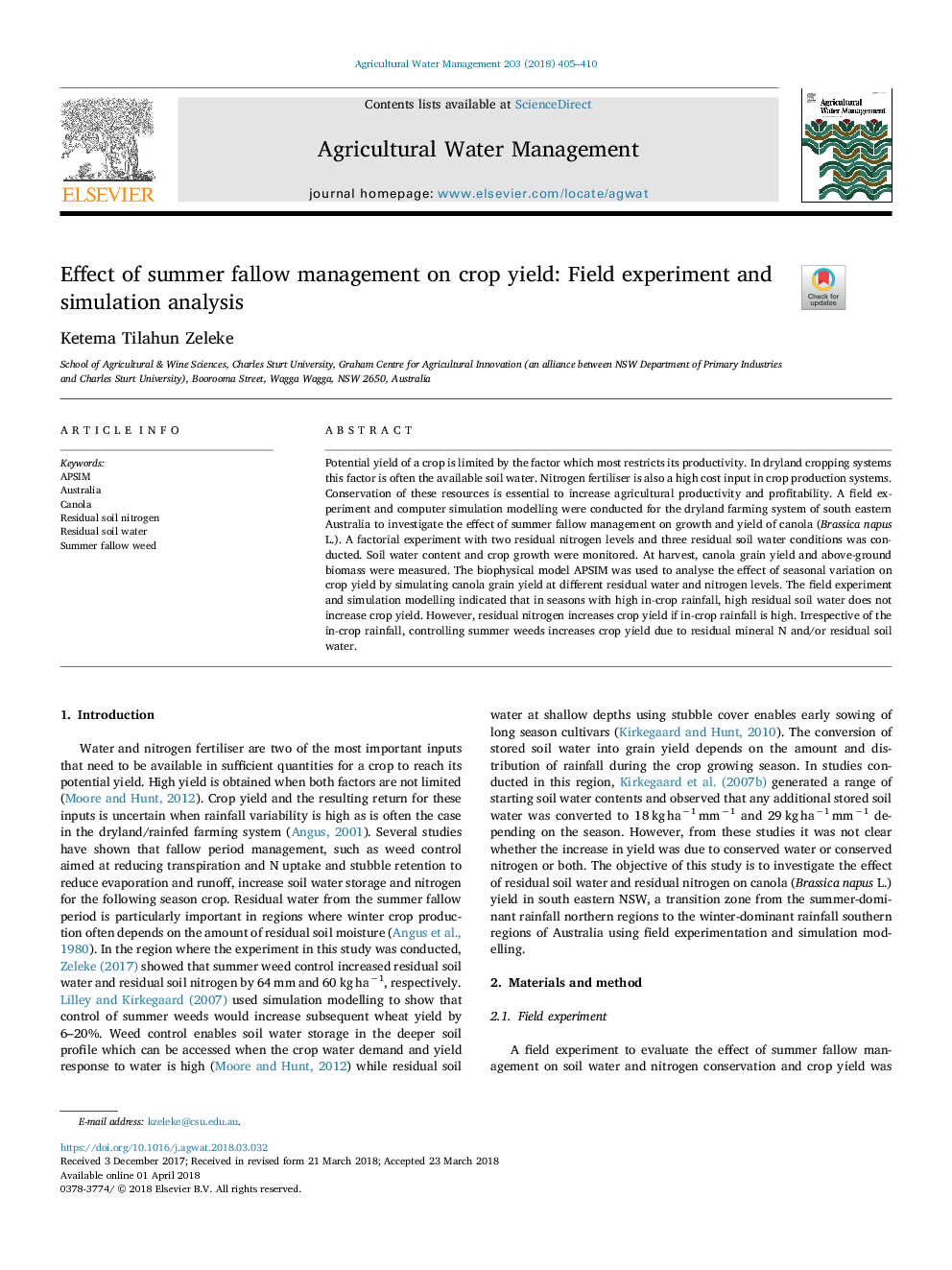ترجمه فارسی عنوان مقاله
تاثیر مدیریت تابستانه تابستان بر عملکرد محصول: آزمایش و تحلیل شبیه سازی
عنوان انگلیسی
Effect of summer fallow management on crop yield: Field experiment and simulation analysis
| کد مقاله | سال انتشار | تعداد صفحات مقاله انگلیسی |
|---|---|---|
| 100362 | 2018 | 6 صفحه PDF |
منبع

Publisher : Elsevier - Science Direct (الزویر - ساینس دایرکت)
Journal : Agricultural Water Management, Volume 203, 30 April 2018, Pages 405-410

